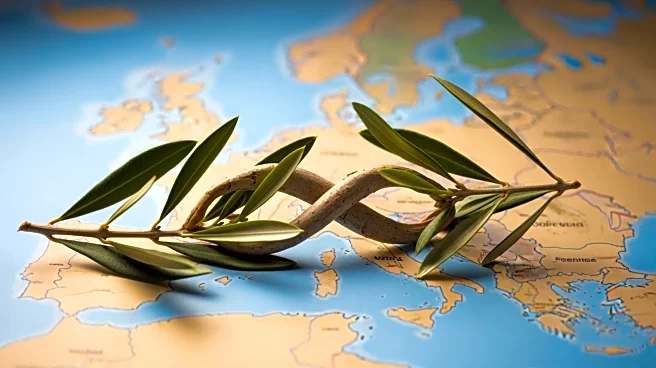What's Happening?
European leaders have expressed support for U.S. President Donald Trump's proposal to freeze the current front line in the Ukraine conflict as a starting point for peace negotiations. This stance is backed
by 11 leaders, including UK Prime Minister Keir Starmer, who emphasize the need for an immediate halt to fighting. However, Russian Foreign Minister Sergei Lavrov has dismissed the idea, stating that Moscow seeks a long-term, sustainable peace rather than a temporary ceasefire. The European statement highlights Russia's stalling tactics, indicating the challenges in reaching a consensus. Trump is planning direct talks with Russian President Vladimir Putin, although the date for a preparatory meeting between U.S. Secretary of State Marco Rubio and Lavrov remains uncertain.
Why It's Important?
The support from European leaders for Trump's proposal underscores a unified approach to seeking peace in Ukraine, despite Russia's resistance. Freezing the front line could prevent further territorial losses for Ukraine and provide a basis for negotiations. However, Russia's rejection of the proposal suggests ongoing challenges in achieving a lasting resolution. The potential talks between Trump and Putin could influence the direction of the conflict, with implications for regional stability and international relations.
What's Next?
The upcoming talks between Trump and Putin may offer a chance to address the conflict's root causes and explore pathways to peace. The European leaders' support for a frontline freeze could pressure Russia to reconsider its position. However, the complexity of the situation means that achieving a consensus will require careful negotiation and compromise from all parties involved.











